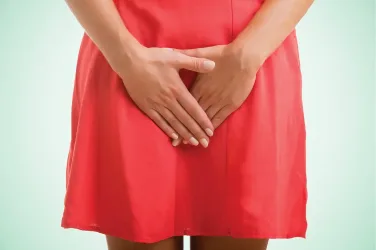
By Pete Alfano
Many people are quick to discard food and beverages that have reached their expiration date. But take a peek inside their medicine cabinet, and you are likely to find a mini pharmacy with over-the-counter supplements and prescription drugs that tell a story of their health history.
Why? Well, you can often see or smell expired food because it develops mold, tastes bad, or looks wilted and beyond redemption. But most medications don’t have any tell-tale signs of deterioration. Thus, we feel comfortable hoarding them for a rainy day or as a security blanket. According to the U.S. Food and Drug Administration (FDA), the truth is that while many medications retain up to 80 or 90% of their potency for several years after the expiration date, it is safer for consumers to discard them.
If a medication has lost even 10% of its potency, it may not work as well, which makes it less effective. It may also have potentially harmful side effects because of an unseen change in its chemical composition.
Another reason for discarding expired drugs is that most people keep them in the bathroom, which is usually warm and humid and not the ideal environment for medications. If you read the label of most prescription drugs or even supplements, it will say to store them in a cool and dry place because humidity can degrade a drug.
Supplements like daily vitamins, zinc, B-12, fish oil, and others are also not immune from losing potency. And remember, most supplements do not come under the scrutiny of the FDA. If a doctor recommends that you begin taking calcium or vitamin D3, it is better to buy a new bottle instead of using what’s left of a bottle that may have expired.
According to the FDA, capsules and tablets are fairly stable and can retain up to 90% of their potency for five years. But is it worth even the slightest risk if it may result in giving you an upset stomach? Liquid remedies for coughs, colds, and allergies, as well as nighttime sleep aids, can degrade a little faster and should be tossed when the expiration date is reached. And eye drops may do more harm than good when used after their expiration date.
Keep in mind that many drugs look similar in shape, size, and color. The more you have stocked away that are expired or that you no longer take, the greater the chance of taking the wrong one. And older people are perhaps more vulnerable. So, don’t waste any more time. Clean out the medicine cabinet and only keep what you need and are using.
For more about medication and well-being, visit LivingMagazine.net/Wellness
How to Dispose of Medications Properly
Proper disposal of expired or unused medications is essential for safety and environmental protection. The FDA recommends using a drug take-back program as the most secure and eco-friendly option. These programs are often available through local pharmacies, hospitals, or law enforcement agencies. You can find authorized collection sites using resources like the DEA’s Controlled Substance Public Disposal Locations tool. In cases where take-back programs are unavailable, the FDA advises specific methods for at-home disposal. Certain medications on the FDA’s flush list, such as powerful pain relievers, should be flushed to prevent accidental ingestion or misuse. If your medication isn’t on the flush list, mix it with an undesirable substance like used coffee grounds, dirt, or cat litter. Place the mixture in a sealed plastic bag before throwing it in your household trash. This makes the medication unappealing to children, pets, and others who might come into contact with it. Always remove personal information from prescription labels to protect your privacy. For liquid medications, ensure the container is tightly sealed before disposal. Avoid discarding medications in their original containers or leaving them accessible in the trash. By following these steps, you can help prevent harm to others and reduce the environmental impact of improper drug disposal. For more information on medication disposal, visit fda.gov/consumers/consumer-updates/where-and-how-dispose-unused-medicines.










